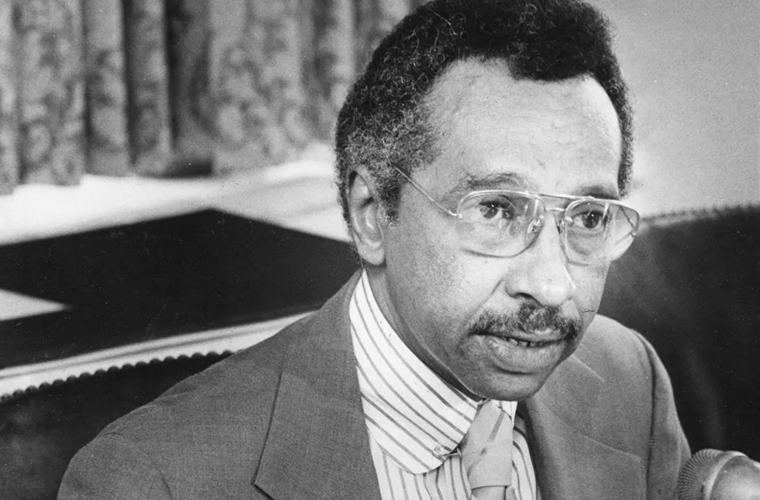Parren James Mitchell was an American politician who served as a U.S. Congressman affiliated with the Democratic Party representing the 7th congressional district of Maryland from January 3, 1971, to January 3, 1987. He was the first African American elected to Congress from Maryland and the first Southern black elected to Congress in the twentieth century. He was also a founding member and a former chairman of the Congressional Black Caucus, a group of African American legislators who advocate for the interests of black Americans.
Mitchell was born in Baltimore, Maryland, on April 29, 1922, to Clarence Mitchell, Sr., a waiter, and Elsie Davis Mitchell, a homemaker. He was one of ten children in a family dedicated to civil rights. His brother Clarence Mitchell Jr. would go on to become the chief lobbyist for the National Association for the Advancement of Colored People (NAACP) and one of Lyndon Johnson’s chief advisers during the Civil Rights Movement. Several nephews would enter state politics and Maryland voters knew the family as the “black Kennedys.”
Mitchell graduated from Frederick Douglass Senior High School in Baltimore in 1940. He served as an officer in the 92nd Infantry Division during World War II, and was wounded in Italy; he received the Purple Heart. He earned his bachelor’s degree from Morgan State University, and his master’s degree from the University of Maryland, College Park. In 1950, Mitchell sued the then segregated University of Maryland for admission to the graduate school with support from the Baltimore Branch of the NAACP, and won admission. When he graduated he was the first African-American to do so from that school.
Before entering graduate school, Mitchell participated in the early civil rights activity in Baltimore. These included protests against segregated seating at Ford’s Theatre in downtown Baltimore City, and unequal funding for teacher training programs in the city’s segregated black school system in 1948.
After graduate school, Mitchell worked as a probation officer and an official in Baltimore city administration. He taught briefly at Morgan State University before launching an unsuccessful campaign for Congress in 1968. Two years later Mitchell won his bid for Congress and became the first black Congressman from Maryland and the first Southern black elected to Congress in the twentieth century. He joined twelve other African American representatives to form the Congressional Black Caucus, and later served as its chairman.
An avowed liberal, Mitchell opposed the Vietnam War and was among the first Congressmen to call for President Richard Nixon’s impeachment. Known as an eloquent and sometimes fiery orator, Mitchell later criticized President Ronald Reagan for his economic policies and for nominating few blacks for judgeships and executive positions.
Mitchell believed that empowering blacks economically would be the second wave of the civil rights movement. As chairman of the House Small Business Committee, he fought to provide business opportunities to minorities and women. In 1976 he wrote an amendment to a public works bill that required local governments receiving federal grants to set aside ten percent of the money for contracts with businesses owned by minorities and women. In 1980 he wrote another amendment that extended the provision to transportation spending.
Mitchell resigned from Congress in 1986 to run for lieutenant governor of Maryland. He lost that race. Mitchell would serve as a mentor to later black Congressmen from Maryland. A series of strokes confined him to a nursing home in the years before his death on May 28, 2007.
Parren James Mitchell was a trailblazer for civil rights and economic empowerment who left a lasting legacy for his district, his state, and his nation.

